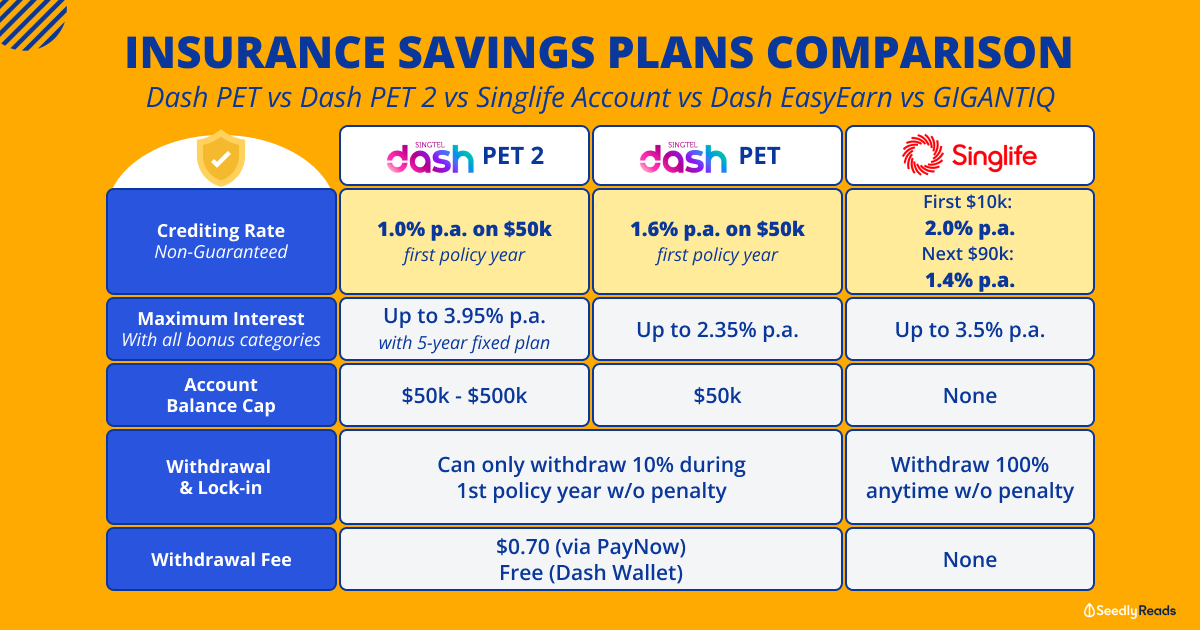Advertisement
Anonymous
Are there any risks involved in insurance savings plan? I heard that insurance savings plan are insurance branded as saving plans to acquire customers.?
7
Discussion (7)
Learn how to style your text
PolicyPal
08 Sep 2020
Official Account at PolicyPal
Reply
Save
Jonathan Soh
26 Aug 2020
Wealth Manager at Aviva Financial Advisers
There are no long term savings plans in the market as far as I know of that are not from insurance companies. Do let me know if you manage to find one.
Reply
Save
Duane Cheng
25 Aug 2020
Financial Consultant at Prudential Assurance Company Singapore
Hi there,
When you do take up an insurance savings plan, you are exposed to interest rate risk and ...
Read 3 other comments with a Seedly account
You will also enjoy exclusive benefits and get access to members only features.
Sign up or login with an email here
Write your thoughts
Related Articles
Related Posts
Related Products

Standard Chartered JumpStart Account
4.8
785 Reviews
Maximum Interest: 2.50% p.a. for balances up to S$50,000
INTEREST RATES
$0
MIN. INITIAL DEPOSIT
$0
MIN. AVG DAILY BALANCE

DBS/POSB Multiplier Account
4.3
329 Reviews

OCBC FRANK Account
4.7
213 Reviews
Related Posts
Advertisement







An insurance savings plan is a type of life insurance policy that combines savings and protection. However, it usually has a low life coverage component, thus it should not be used solely for protection purposes.
Insurers and banks have different standards of compliance and are regulated differently by MAS. Therefore, an insurance savings plan is not a one-for-one substitute for a savings account or fixed deposit.
However, insurance savings plans are relatively low-risk for two reasons:
(a) SDIC Policy Protection Scheme
In the case of a default by the insurance company, if your policy is insured by a company covered by the SDIC's PPF scheme, you will be protected up to S$100,000 for guaranteed sum assured and S$50,000 for guaranteed surrender value per policy.
(b) Guaranteed returns
Most insurance saving plans come with two types of returns, guaranteed and non-guaranteed. It is safe to assume you will get the guaranteed returns. (The non-guaranteed returns are based on the investment performance in the participating fund of the endowment policy, which is the risky part. If you want, you can disregard non-guaranteed returns when comparing products.)
To sum it up, insurance savings plans are higher risk than banks, but still much lower risk than investing or investment-based accounts.